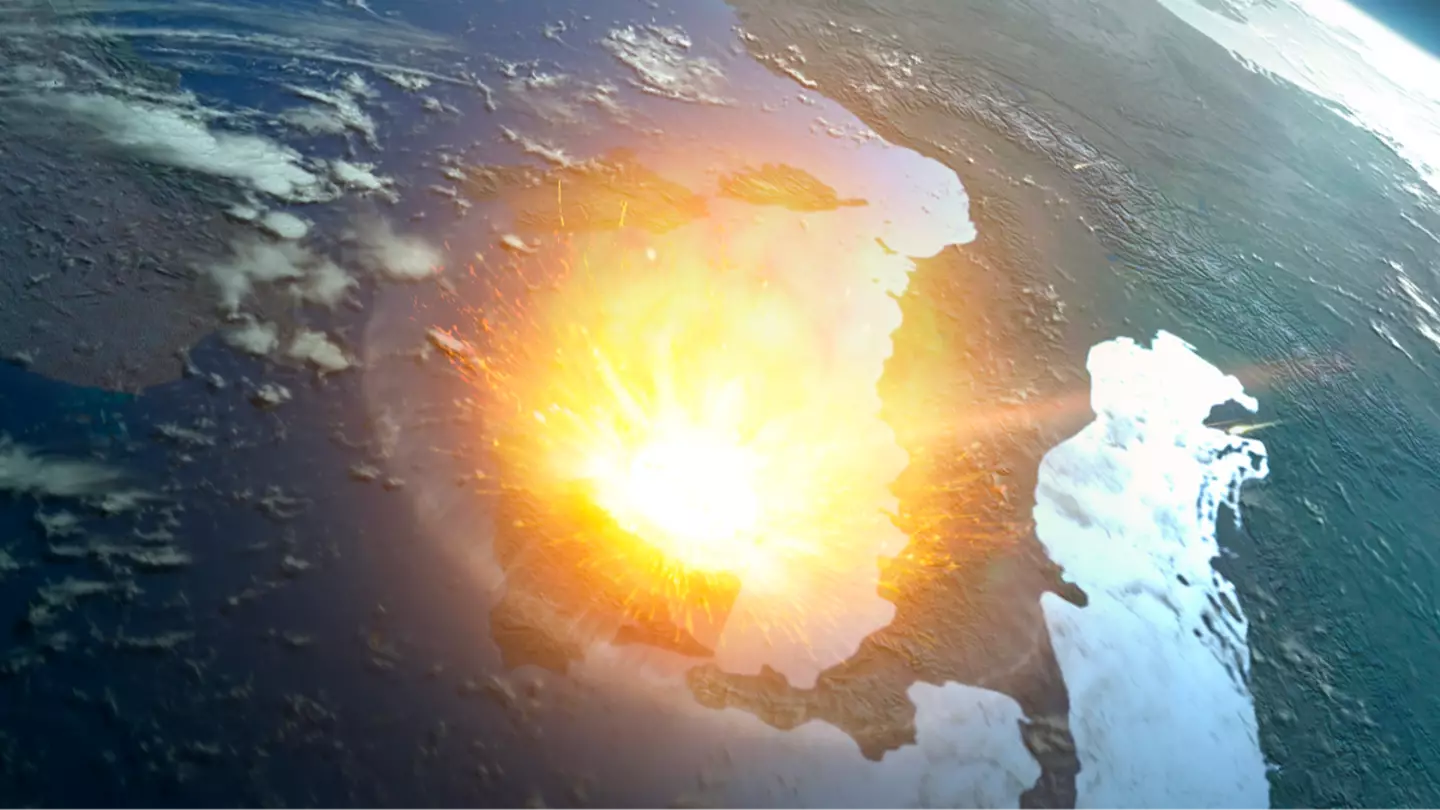

In the space of two months, we've discovered that a 'city-destroying' asteroid the size of the Statue of Liberty could be slowly hurtling towards our planet.
There is a one-in-43 chance that the giant piece of space rock dubbed '2024 YR4' will collide with Earth in 2032, and while it sounds like we've got plenty of time to draw up plans on how to protect humanity, some experts believe it's too late.
Now, nine countries have been named as being at risk of collision with the asteroid that astronomers believe would create a mid-air explosion when entering our atmosphere, with a crash site being as destructive as eight million tons of TNT - damaging everything within a 30-miles radius.
Advert
Currently, David Rankin, an engineer with NASA’s Catalina Sky Survey Project, mapped out a 'risk corridor', predicting it to collide anywhere around northern South America, across the Pacific Ocean, southern Asia, the Arabian Sea, and Africa.
It meant the nine countries that are at risk of impact are India, Pakistan, Bangladesh, Ethiopia, Sudan, Nigeria, Venezuela, Colombia, and Ecuador would be at risk for taking the brunt of the impact.

Dr Robin George Andrews, a scientist who has written a book titled How to kill an asteroid, took to Twitter to warn of the dangers that could occur if mankind attempted to send a rocket into space and knock the asteroid off of its projected path.
Advert
"Nobody wants to accidentally 'disrupt' an asteroid, because those components can still head for Earth. As I often say, it's like turning a cannonball into a shotgun spray," he wrote of the asteroid that is orbiting around Earth.
"But we aren't going to see it again until another Earth flyby in 2028. So much could go wrong if we try and hit it with something like DART [Double Asteroid Redirection Test - which was the first-ever mission dedicated to investigating and demonstrating one method of asteroid deflection by changing an asteroid’s motion in space through kinetic impact].

"It may be smaller, or larger. If it's too big, we may not be able to deflect it with one spacecraft. We'd need several to hit it perfectly, all without catastrophically breaking it."
Advert
He continued on the social media platform: "And with only a few years down the line, we could accidentally deflect it—but not enough to make it avoid the planet. Then, it still hits Earth, just somewhere else that wasn't going to be hit."
While Andrews also suggested that the best possible defense on this occasion could simply be to let it crash into us and evacuate everyone in the area before collision.
"Asteroid 2024 YR4 isn't likely to be a problem at all; it'll probably miss Earth. But if it doesn't, we have to be wary of trying to save the world but accidentally making the problem worse. Maybe we'll just have to get out of the asteroid's way this time," he added.
Topics: Space, World News